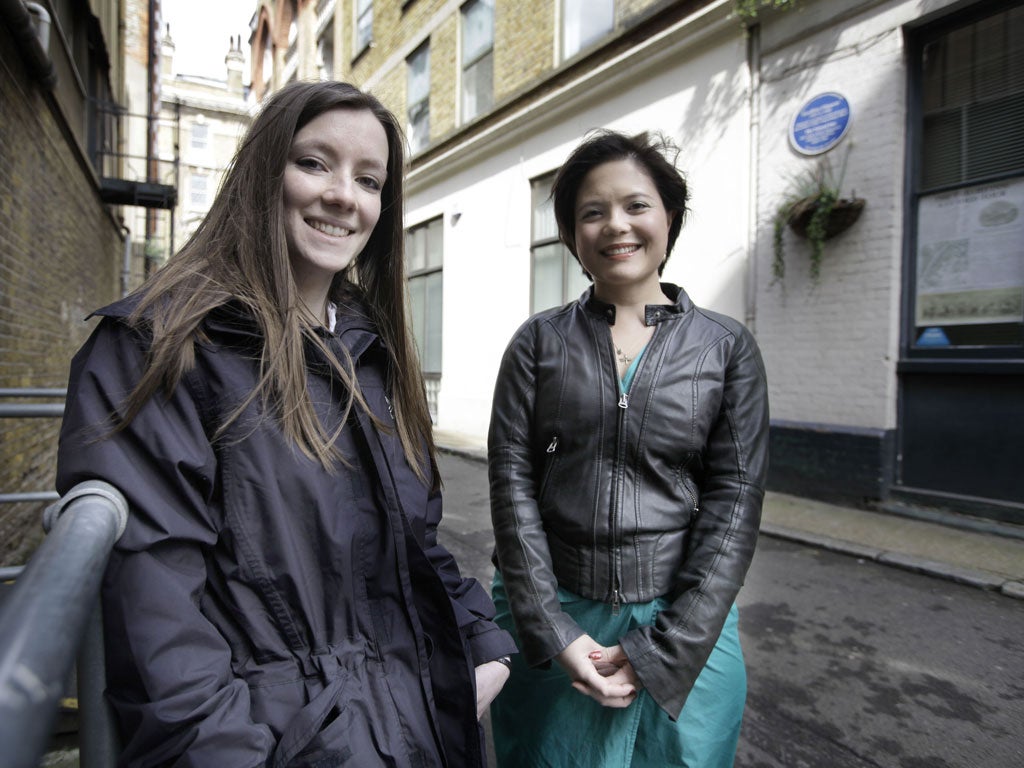Following Chaucer's footsteps, the Re-enactors' Tale
A new band of pilgrims will take to the Old Kent Road this week to relive The Canterbury Tales

Your support helps us to tell the story
From reproductive rights to climate change to Big Tech, The Independent is on the ground when the story is developing. Whether it's investigating the financials of Elon Musk's pro-Trump PAC or producing our latest documentary, 'The A Word', which shines a light on the American women fighting for reproductive rights, we know how important it is to parse out the facts from the messaging.
At such a critical moment in US history, we need reporters on the ground. Your donation allows us to keep sending journalists to speak to both sides of the story.
The Independent is trusted by Americans across the entire political spectrum. And unlike many other quality news outlets, we choose not to lock Americans out of our reporting and analysis with paywalls. We believe quality journalism should be available to everyone, paid for by those who can afford it.
Your support makes all the difference.If you're travelling along the A2 on Wednesday, look out for an odd-looking group of walkers – it would be nice if they wore fustian tunics and scarlet stockings but no one's making any promises. Take a closer look, and you should be able to spot the Wife of Bath and the Knight's Yeoman among them. For a band of 24 Geoffrey Chaucer enthusiasts is setting off on a re-enactment of the famous pilgrimage made by the characters of The Canterbury Tales. It will mark exactly 625 years since the poem was started.
The merry band will be led by the 26-year-old writer and documentary-maker Henry Eliot, who has dreamed of carrying out the 65-mile pilgrimage ever since he studied Chaucer's poem at university.
In the poem, first printed by William Caxton in 1478, a group of pilgrims make their way to the shrine of Saint Thomas Becket in Canterbury Cathedral. The group devise a story-telling contest to enliven the journey, the prize being a free meal on their return at the Tabard Inn, which stood in what is now Talbot Yard, at Southwark in London.
As Mr Eliot and his friends pass through the towns and locations featured in the poem – from Southwark to Dartford and Rochester to Faversham – they will recite the tales. There is no insistence on an authentic retelling: the cast may "rap" the stories or add a modern twist if they wish.
Not surprisingly, the landscape the modern-day pilgrims will pass through will bear little resemblance to the pre-industrial Kent that Chaucer would have known. The Knight's Tale in the poem is told at the site of a stream and pond – the Watering of St Thomas; today, inevitably, there's a Tesco on this site.
Watling Street, the great Roman road heading south-east out of London, which the pilgrims would have taken, is now the A2. And a succession of Travel Lodges and B&B's are more likely to provide respite for the group at night, as opposed to the inns and taverns of the 14th century.
"The idea came from wanting to hear all the tales in one go," said Mr Eliot. "I found that hardly anyone I met had read all the tales. I love walking, so I thought it would be a lot of fun to try and do the full walk and hear the tales in one go and experience what these fictional pilgrims would have experienced."
Mr Eliot added that he might have started a new trend as he has received several inquiries from groups keen to undertake the pilgrimage later in the year. He and his companions are completing the trip for a charity called the National Literacy Trust and have so far raised around £6,000.
Helen Cooper, a professor of medieval English at the University of Cambridge and a leading authority on The Canterbury Tales, will give a speech to the pilgrims on Tuesday evening at a private dinner at the George Inn, next to the spot where the Tabard once stood.
"The Canterbury Tales are more or less the equivalent of the complete works of Shakespeare," said Professor Cooper. "There's everything in there. It's very sophisticated, it's tragic, it's funny, it's devotional. It has a very sharp eye for the foibles of human nature. And it's brilliantly written in a magnificent range of styles, again comparable to Shakespeare."
Though he predated the Renaissance by more than a hundred years, you could say that Geoffrey Chaucer was something of a Renaissance man. He achieved fame during his lifetime as an author, philosopher, alchemist and astronomer, while also maintaining a career in the civil service as a customs officer.
The Canterbury Tales has been adapted many times for stage and screen, perhaps most notably by Pier Paolo Pasolini in his 1972 film of the same name. It is generally thought that the poem is incomplete, though that consensus is still hotly disputed.
Join our commenting forum
Join thought-provoking conversations, follow other Independent readers and see their replies
Comments